It is Neither Possible Nor Useful for a Country to Provide University Places for a High Proportion of Young People - IELTS Writing Task 2
7 min read
Updated On
-
Copy link
Explore sample answers on IELTS Writing Task 2 topic, ‘It is Neither Possible Nor Useful for a Country to Provide University Places,’ and understand its impact on society, analyze advantages & disadvantages, to improve your Band 9 writing skills!
Table of Contents
- Question
- Outline for IELTS Agree Disagree Question Essay
- Band 7 Sample Answer for It is Neither Possible Nor Useful for a Country to Provide University Places for a High Proportion of Young People IELTS Writing Task 2
- Band 8 Sample Answer for It is Neither Possible Nor Useful for a Country to Provide University Places for a High Proportion of Young People IELTS Writing Task 2
- Band 9 Sample Answer for It is Neither Possible Nor Useful for a Country to Provide University Places for a High Proportion of Young People IELTS Writing Task 2
- Useful Vocabulary and Expressions for this IELTS Writing Topic

Try AI Essay Checker for Instant Band Score
IELTS Writing Task 2 is more abstract in style and requires you to express your opinions. As a result, follow our posts for more extensive explanations about ways to approach agree disagree essays in IELTS and develop your writing skills by practicing topics like the one given here!
In this article, you’re presented with "It is Neither Possible Nor Useful for a Country to Provide University Places for a High Proportion of Young People” IELTS Writing Task 2 agree or disagree essay that asks to what extent you agree or disagree with the given statement. So, you are allowed to give a partial view of it at times to address it. The essay writing section of the IELTS Writing Module can be a difficult task for many IELTS aspirants.
Hence, you must polish your essay writing skills before attempting the test. To further hone your IELTS writing ways, check out a comprehensive collection of IELTS writing task practice tests from IELTSMaterial.com! Okay so, let's get started now!
Question
You should spend about 40 minutes on this task.
It is neither possible nor useful for a country to provide university places for a high proportion of young people. To what extent do you agree or disagree?
You should write at least 250 words.
Outline for IELTS Agree Disagree Question Essay
|
Introduction
Body Paragraph 1
Body Paragraph 2
Conclusion
|
Want feedback on your IELTS Writing essay?
Submit IELTS Writing Essay for evaluation today!
Band 7 Sample Answer for It is Neither Possible Nor Useful for a Country to Provide University Places for a High Proportion of Young People IELTS Writing Task 2
Furnishing the young generations with tertiary education play an indispensable part in the government’s policies. However, most policy makers reckon that it is infeasible and inefficient to offer the vast majority of the youth higher education. From my perspective, I completely agree with this statement for the following reasons.
It proves impossible for a country to provide entry to tertiary education for all young people. The first reason is the prohibitive tuition fees and the inability to afford them of the majority of youths. College or university undergraduates are supposed to learn from experiments, purchase costly materials during a term, let alone other field trips if one majors in practical fields of study like engineering or medical. All of these plus the fact that many students from rural areas find it tough to meet only the annual tuition fees, especially in poverty-stricken countries. This leads to the second reason in which I mean government have other priorities such as universal education, healthcare system to invest in.
It also does not seem useful for the whole country once the state wish to accommodate the youth with higher education. This is primarily because there is no guarantee that students will become successful and contribute to the well-being of their nation after finishing their education. There are the cases when distinguished graduates fail to secure a decent job and thus become unemployed, exacerbating the burden on society as a consequence. Even worse, some are likely to slack off with their studies or even drop out of school as they either take higher education for granted or find no motivation in furthering their knowledge, given the thought that tertiary education is subsidized or free of charge.
In conclusion, it’s my firm belief that not only it is neither possible nor useful for a country to provide university places for a high proportion of young people
Band 8 Sample Answer for It is Neither Possible Nor Useful for a Country to Provide University Places for a High Proportion of Young People IELTS Writing Task 2
There has been a difference of opinions regarding the accessibility of tertiary education to the majority of young people. In my view, dispensing university educational services on such a large scale brings about no practical values to society, and also, it is rather unfeasible to carry out this policy.
First, widespread entry into university does not seem really useful to a country since the government need to take the needs of both the youth and the economy into consideration. In many countries, especially Germany, vocational training has gained more popularity among young people because it enhances employment opportunities as well as job security upon completion. Furthermore, if everyone could gain admittance to college, it would lead to imbalances in workforce that would greatly damage economic structure. It is because there is little chance that university graduates would choose blue-collar jobs such as working in factories.
Second, I think that it is impossible to provide almost all young people with access to tertiary education. In Vietnam, the demand for entering college never ceases to grow at a rapid rate. This puts the government in a dilemma of whether they should risk allocating their resources and therefore face the possibility of bankruptcy due to exorbitant education costs in many financially dependent universities, like Foreign Trade University or National Economics University. On top of that, it is simply unrealistic for universities to accommodate such a suddenly increased number of students on campus, not to mention the fact that most departments are currently short-staffed.
In conclusion, I strongly oppose the idea of supplying entry to a high proportion of young people owing to the presented arguments above.
Band 9 Sample Answer for It is Neither Possible Nor Useful for a Country to Provide University Places for a High Proportion of Young People IELTS Writing Task 2
It is sometimes argued that providing tertiary education for a massive number of youngsters is both impossible and not essential. I totally agree with this view.
On the one hand, that most young people can enter university is not feasible, especially in developing nations. Firstly, personal financial difficulties may prevent any high school leavers from continuing university education. Tuition fees at this level in several countries are extremely high, so not all the young and their families can afford. A telling example is England where charges a high university fee, leading to a quite low university attendant number in comparison with German whose university system is free of charge. Secondly, educational facilities and infrastructure to secure that a high proportion of young people can have tertiary placement require an enormous investment from the government. Unfortunately, some poor nations have to prioritize basic needs such as food or healthcare for their citizens, so education is not sufficiently subsidized for a high percentage of the young.
On the other hand, it is also detrimental to bestow university education on most youngsters. The initial reason is that this policy can lead to the dearth of manual workers. Because young generations would be all equipped with professional knowledge and skills if this policy were implemented, the higher proportion of them study university, the lower will work for some menial positions. Consequently, vacancies such as taxi drivers and construction workers will lack recruitees. Adversely, this trend also means the increase in unemployment rate in several modern section including technology and science which have too many applicants. Ultimately, there will be an imbalance in labor market.
In conclusion, I believe that it is not only unpractical but also not vital to provide tertiary education places for too many youngsters.
Connect with our IELTS Experts to crack your IELTS Writing Section and achieve a band 8+
Useful Vocabulary and Expressions for this IELTS Writing Topic
- Play an indispensable part in (collo) participate in something in a important way
- Prohibitive (a) So high or burdensome
- Let alone: not to mention or think of someone or something
- Major in (verb) specialize in something
- Poverty-stricken (a) extremely poor
- Accommodate sb with sth (verb) provide sb with sth
- Contribute to (verb) to donate something to some cause
- Well-being (noun) The state of being healthy, happy, or prosperous
- Secure a decent job (collo) obtain a good job
- Exacerbate (verb) to make a problem become worse
- Slack off (verb) to work less hard than is usual or necessary; become lazy
- Take something/somebody for granted (idiom) to fail to appreciate someone/the value of something
- Subsidize (verb) to pay some of the cost of goods or services so that they can be sold to other people at a lower price
- Free of charge (phrase) without paying any money
Now that you've reviewed sample answers for 'It is Neither Possible Nor Useful for a Country to Provide University Places for a High Proportion of Young People' - IELTS Writing Task 2, you can write your own. Share your answers in the comments, or get expert feedback with our FREE evaluation service. Also, to improve your IELTS Writing Task 2 score, study the marking criteria and apply them while practicing the IELTS Writing practice tests and common IELTS essay topics for Writing Task 2.
Useful Links:
- We No Longer Need to have Animals Kept in Zoos - IELTS Writing Task 2
- International Community Must Act Immediately to Reduce Consumption of Fossil Fuels - IELTS Writing Task 2
- Time and resources are spent on the protection of wild animals and birds - IELTS Writing Task 2
- 30 IELTS Writing Recent Actual Tests & Model Essays
- 21+ Tips On How to Improve Your IELTS Writing Band Score
- All Useful IELTS Writing Lessons & Websites
- Tips to Write an Effective Introduction for IELTS Writing Task 2
Practice IELTS Writing Task 2 based on Essay types

Start Preparing for IELTS: Get Your 10-Day Study Plan Today!
Explore other Writing Actual Tests

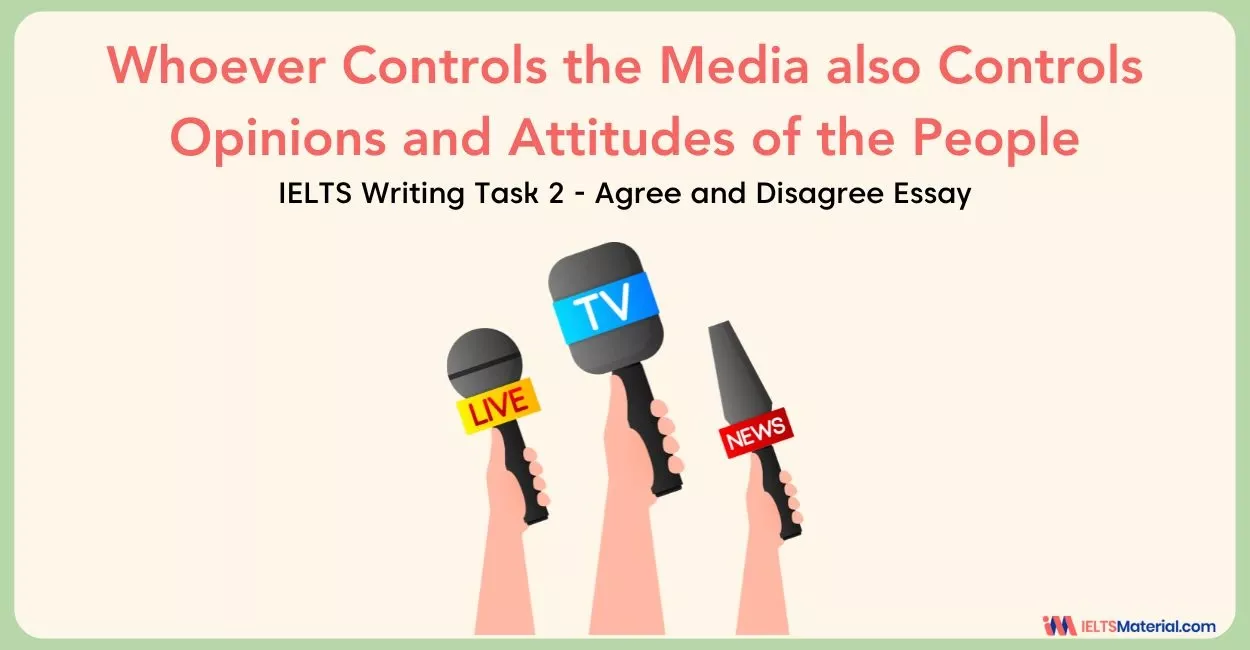
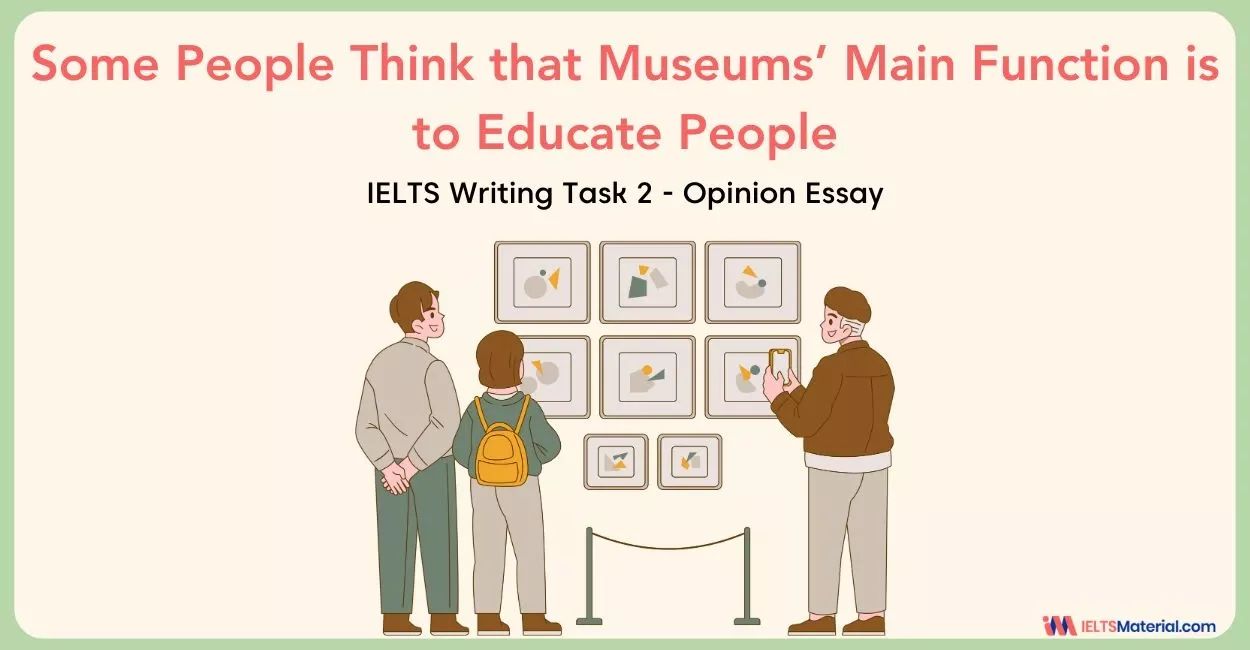
Recent Articles

Haniya Yashfeen
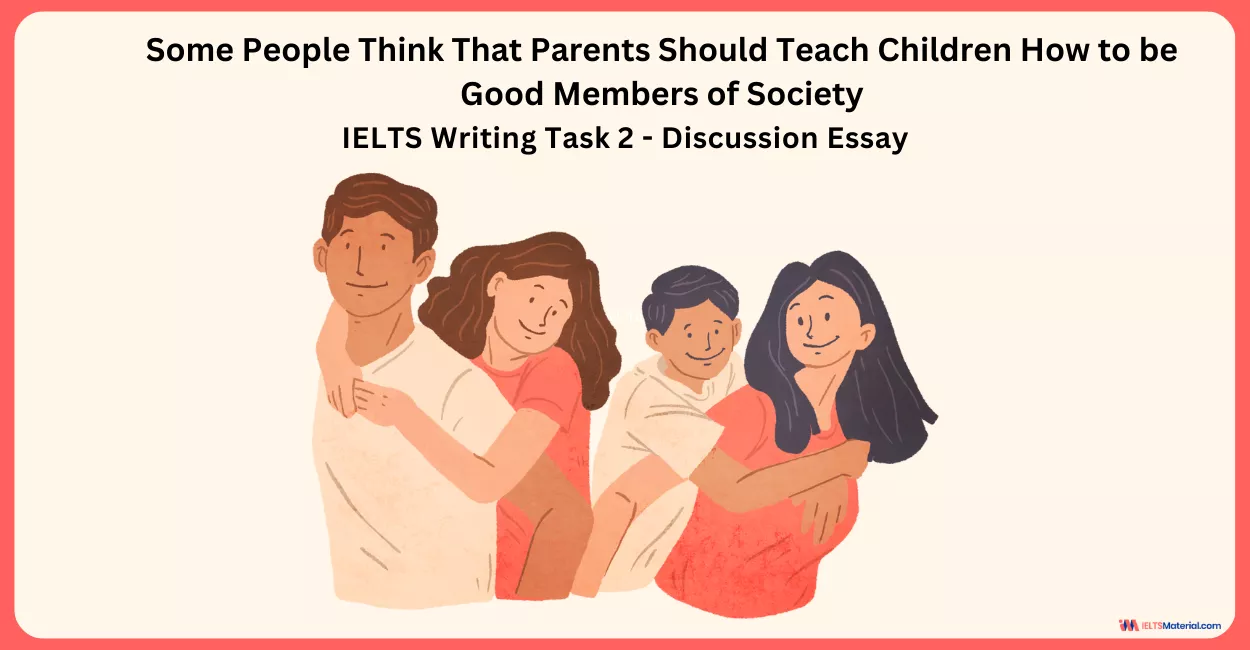

Prity Mallick

Kasturika Samanta
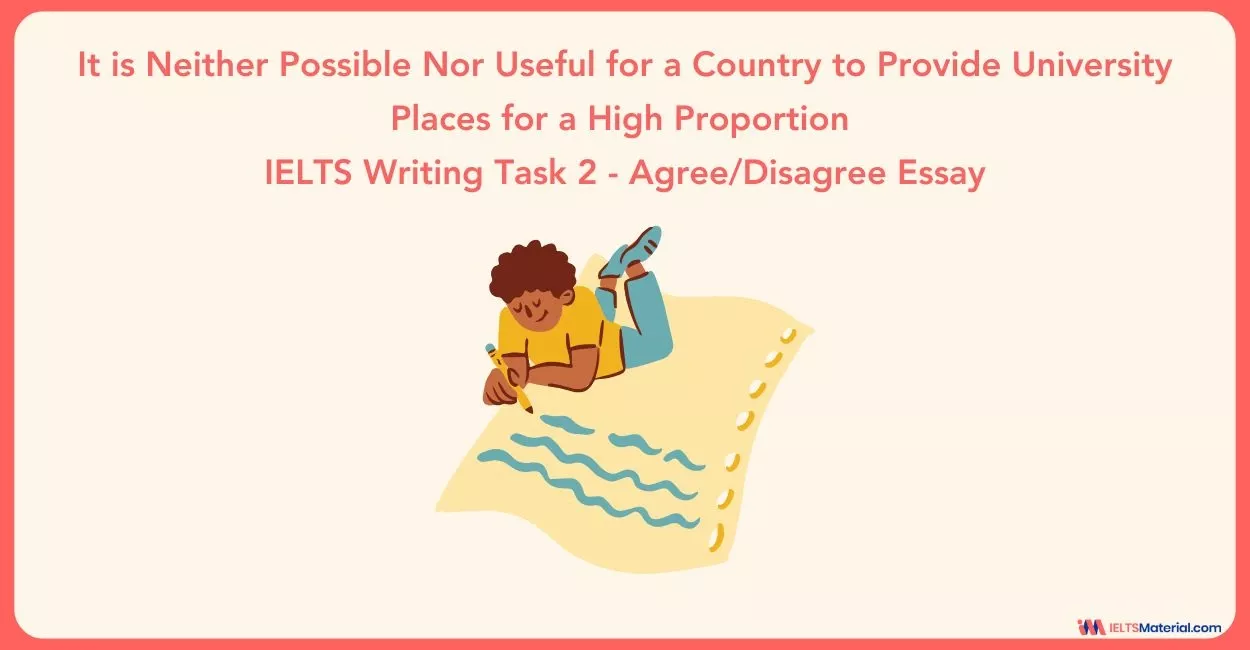

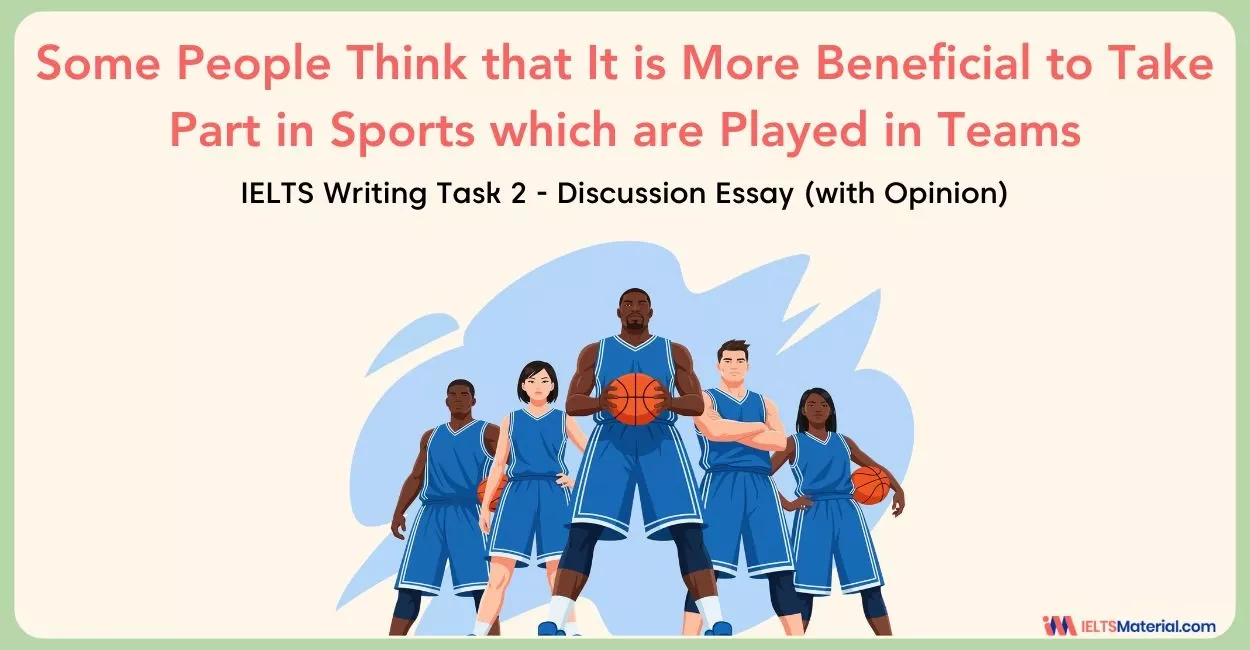


Post your Comments